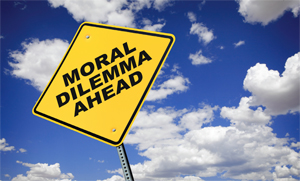Philosophy of training can be a discipline indicated not only by extensive theoretical eclecticism but also by way of a definite dispute, which started in the middle-twentieth-century, over exactly what the discipline’s setting and functions possibly ought to be. Inside the “Philosophy of Knowledge” post that has been included in this encyclopedia’s prior variation Frankena wrote, “In an expression there’s no such factor while education” (p’s idea. During specified intervals of the real history of the philosophy of education, there have been predominant viewpoints, to make sure: at once, the area was outlined around canonical operates on education by wonderful philosophers (Plato of historical Greece, the eighteenth-century Swiss-born Frenchman Jean-Jacques Rousseau, yet others); at other times, the industry was dominated, within the United States at least, from the amount of John Dewey (18591952) and educational Progressivism; at additional times, the subject was seen as an an austere analytical strategy that explicitly declined a lot of what had come before within the discipline as not even being right “viewpoint” at all. But even during these periods of visibility there were sharp central differences inside the area (such as feminist criticisms of the “Fantastic Male” way of viewpoint of training and healthy evaluations of the analytic process). Such disputes can be read off the real history of periodicals, the professional groups, and graduate applications that institutionalize the subject, and they could be reported via a succession of prior encyclopedia posts, which by classification make an effort to establish and delimit their material. These sorts of struggles over the preservation of the boundary that is disciplinary, and also the make an effort to establish and enforce certain methods as paramount, are seldom special to philosophy of schooling. But concerns have so preoccupied its providers that at-times these very issues appear to end up being the compound of the discipline, nearly of contemplating genuine educational issues to the exclusion. And thus it is not hardly unsurprising to find, for instance, a guide including Philosophers on Education.
Dilemmas of honesty lie beyond your boundaries of fiscal motive.
Comprising some documents compiled by skilled philosophers totally away from discipline of idea of education, the selection cites almost none of the job released inside the control; since the philosophers don’t have any worries concerning the standing of the discipline of idea of education, they’ve few qualms about speaking authoritatively about what philosophy needs to tell teachers. About the other-hand, an effective subject for reflection is whether a more self-vital method of idea of education, even when occasionally it appears to become dragging up its sources for assessment, may show more fruitful for contemplating education, because this very trend toward self-critique maintains elementary inquiries living and ready to accept reexamination. Any report must have a position in relation to such conflicts. Nevertheless much in conveying the opportunity and intent behind a one attempts to be extensive and dispassionate, it is difficult to create something about it without picturing some controversy, anywhere, that might put such claims to challenge. That is particularly so of “specific” approaches, that is, those developed around a listing of forms of philosophy of knowledge, or of distinct schools of thought, or of techniques that are disciplinary that are distinct. Through the period of while in the discipline that’s extended to the twenty-first millennium unique i loved this range and interdisciplinarity characterizations look especially artificialbut perhaps imperial worse than this and exclusionary. So the problem would be to discover a way of characterizing the area that is true-to its eclecticism but that also appears back reflexively in the ramifications of these characterizations, including itself, inside the character of disciplinary border maintenance and methodological tip-location which are continually under question.
This really is another country of ups and downs.
By taking into consideration the impulses that attract one into this task in any respect: What is philosophy of schooling, one method to begin such an assessment is for? Maybe these signals might be more easily generalized about the field than any certain set of colleges of thought, groups, professional-essay or disciplinary strategies. Furthermore, these impulses slice and interrelate methods that might otherwise look really distinct. And they coexist as even, and impulses within wide philosophical movements inside the thought of philosophers that are specific themselves contradictory you might say which may help clarify the inclination toward reflexive self-examination doubt and that thus exercises viewpoint of education as being a field. The Prescriptive Wish The primary wish is prescriptive. In several values this is actually the oldest and most persistent tendency: to offer a philosophically managed of exactly what the aims and routines of training should be pregnancy. In some instances, as in Plato’s Republic, these medications are derived from a general utopian vision; in different instances, such as seventeenth-century English thinker John Locke’s Some Ideas Concerning Training or Rousseauis Emile, they derive from a fairly comprehensive reconception of exactly what the morning-today pursuits of teaching should appear to be; in still other instances, such solutions are based on other cultural or moral rules, as in various Kantian opinions of education (despite the fact that eighteenth-century German philosopher Immanuel Kant himself had hardly any to state on the subject).

Update: notice scheana’s facet of the account below..
These inclinations that are prescriptive come in a more capturing cultural vision several areas what people assume from viewpoint of schooling: a better perception, an expression of inspiration and greater function. It’s what individuals typically mean once they talk about having a “philosophy of education.”
